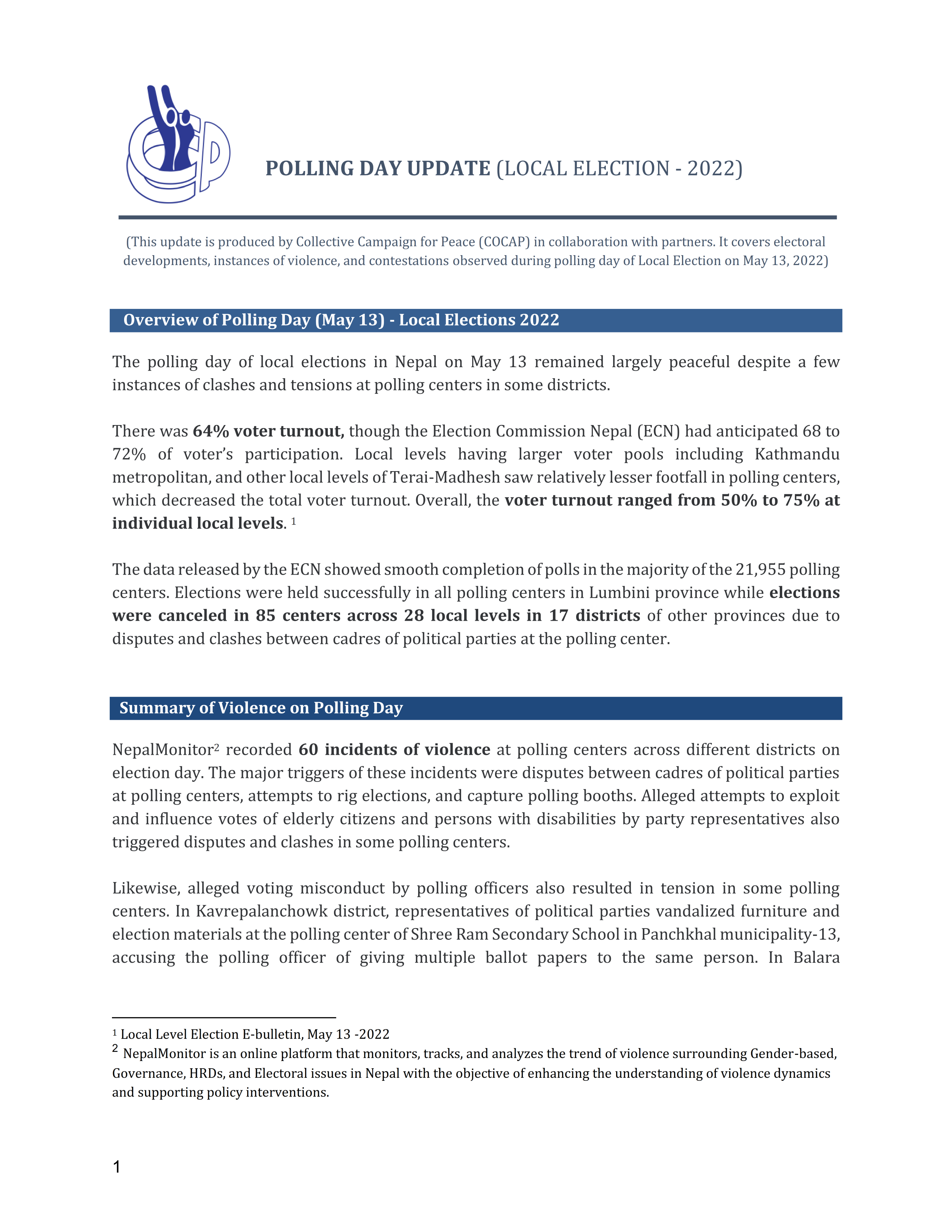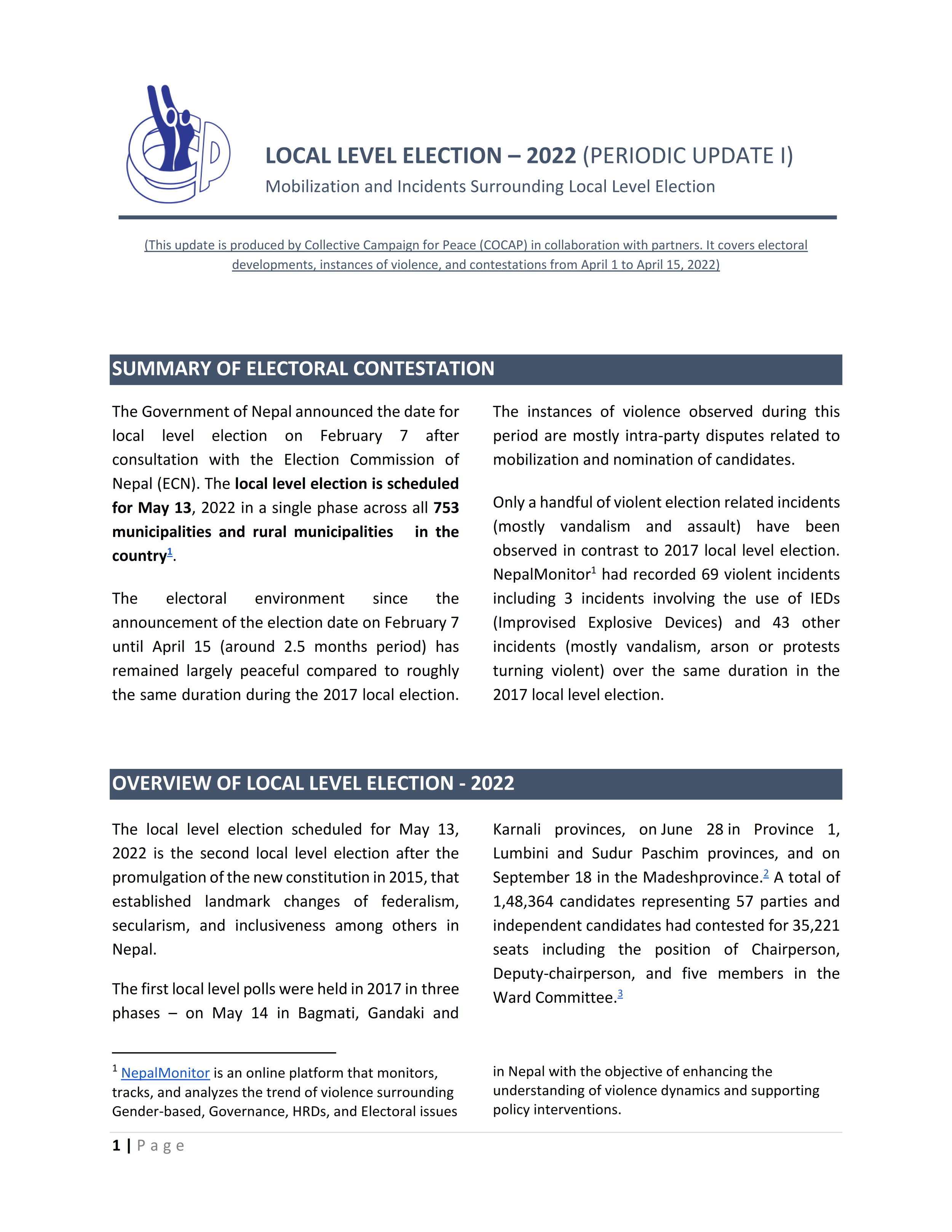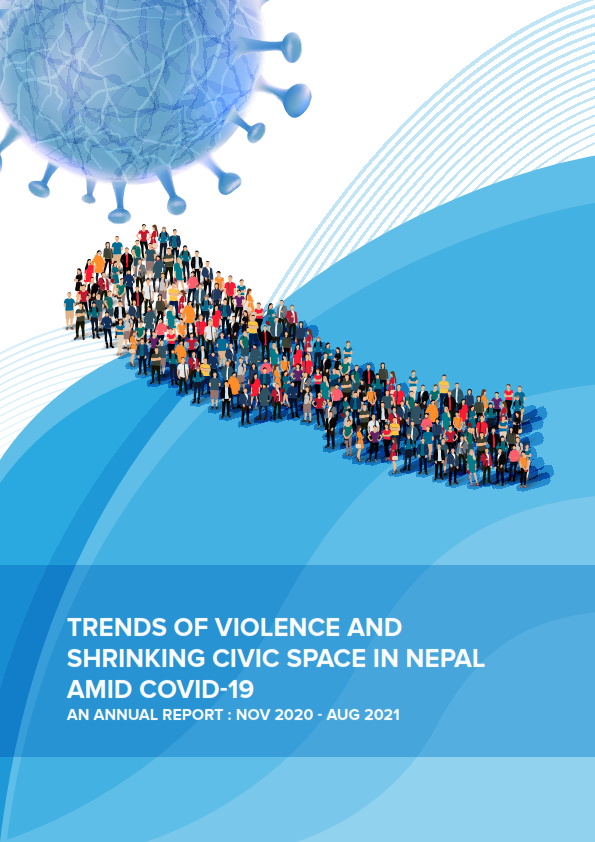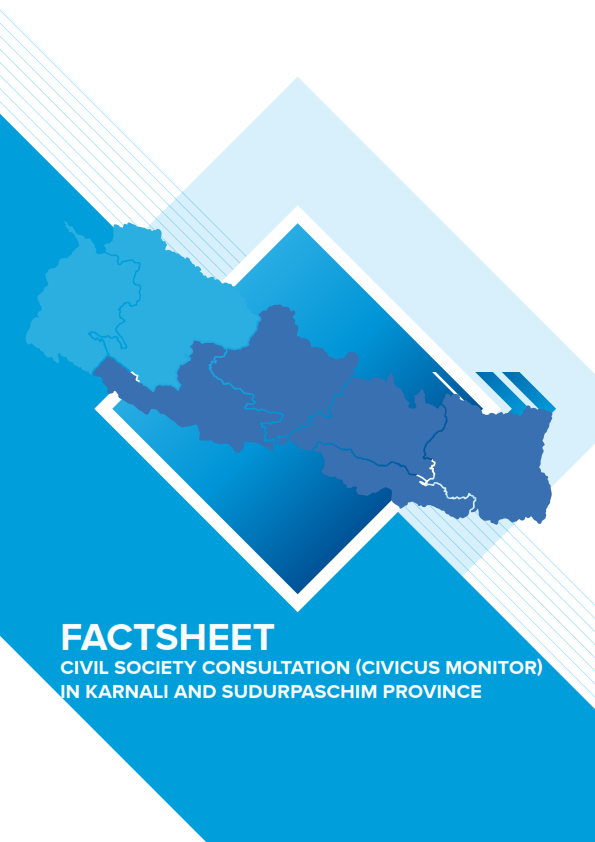Incident Reports
'Commentary: INGOs, show us your numbers' -Subash Ghimire's Opinion piece
2015-06-16
New York-based ProPublica's recent exposé of the 'gross mismanagement of half a billion dollars' by the International Red Cross in the aftermath of the 2010 earthquake in Haiti provides useful insight into the workings of many international organizations in the developing world. They built just six houses and never trusted local wisdom and expertise in the Caribbean country's rebuilding efforts.
Of the 3.5 billion dollars in earthquake funds, 96 percent was managed by INGOs in Haiti, with the Haitian government managing only one percent. Most of the 96 percent of the funds was spent on consultations, transportation and on expert opinion. The lack of local governments to oversee INGO work only fueled the corruption. Haiti is popularly known today as the 'republic of INGOs'. We do not want to see a replay of the same story in Nepal.
It is a given that our government is pathetically indecisive during times of crisis, but it is always under rigorous scrutiny. Just a few weeks ago, the National Vigilance Center probed into government irregularities and the misuse of relief goods, and submitted a report to the prime minister, highlighting lapses in service delivery on the part of our state authorities. Parliament's Public Accounts Committee has started grilling government ministers and top officials over alleged abuse of authority. Furthermore, the CIAA has confiscated related documents from the Ministry of Urban Development and started investigating the cases of corruption. Similarly, the Office of the Auditor-General will look into all relevant transactions and point out all the unsettled accounts and arrears in its annual report.
While the INGOs never tire of preaching to us about "transparency and accountability," they must also abide by the same standards. Let all the INGOs working in Nepal make public the expenses of all "international experts and consultants" that have been brought in to help with the earthquake relief effort.
INGO's reluctance to contribute to the PM's Relief Fund is a ploy designed to perpetually undermine and weaken our government and keep themselves relevant to our "development efforts" for the foreseeable future. Clueless experts arriving in Kathmandu the day after the quake to "help us" wanted their interviews published in the major dailies, before even trying to understand the severity of the tragedy.
Many international organizations have not been able to spend all the funds they received for emergency rescue and relief operations. So they are actively exploring ways to spend those funds. Some organizations are hiring a five-seater helicopter at a cost of $2,500 per hour. The usual rate for such helicopters is $1,000 per hour for long-term contracts.
While the Koirala government was harshly criticized for its snail-pace reaction in the first few days of the earthquake tragedy, it has so far arranged 4,999 helicopter flights, rescued 7,606 individuals through its air ambulances, and treated thousands of victims, all free of cost. The government mobilized 66,069 army personnel, 41,776 police, 24,775 armed police force personnel, and 22,500 civil servants in the field for rescue operations, relief distribution, and data collection. More than five million people slept outside their homes without any major incident. This whole operation was carried out with a budget of less than $50 million.
The UN and various international organizations, NGOs/INGOs and bilateral and multilateral donors received $124.7 million through the UN Flash Appeal and $182.9 million was received outside of that appeal. According to sources, various UN agencies have brought in hundreds of additional staff, in addition to their regular staff in Nepal. UNICEF Nepal has hired 104 international experts, WFP has hired 200, IOM 200, UNDP 45, and WHO 100. There are about 2,000 UN/INGO staff operating as consultants. Their perks range from $1000 to $10,000 per day. When operational and logistics costs are included, it comes to about $20 million dollars in monthly expenses.
The majority of the UN staff are supposed to be here only for rescue and relief operations. The government has already declared that the rescue and relief phase is over; these consultants should be on their way home. But they are still here, planning on extending their stay, claiming that government institutions are incapable of handling the crisis and they have to keep stepping in.
The UN has set-up shelter cluster-coordination teams in Gorkha, Dhading and Sindhupalchowk without government approval. Members of the teams include gender specialists, socio-economic specialists, and so on. They are often using Nepali tour guides and family members as resource persons for identifying earthquake victims, and relief materials are distributed without any coordination with the CDOs concerned.
Organized syndication
One of the organizations actively lobbying the UN and other aid organizations to send in more international staff is the Nepal Risk Reduction Consortium (NRRC). The organization just compiles risk reports prepared by government agencies and other NGOs. While the secretary at the Home Ministry is the honorary chairman of the team, the organization is headed by a highly-paid international consultant ($10,000-30,000 per month). This is the same organization that was vehemently opposed to the Nepal government's suggestion before the earthquake to train an international standard Search and Rescue Team (from among our security forces). If we had had the search and rescue team ready, the government's rescue operations would have been much more effective. NRRC is also working hard to remind the international community that the Nepal government is incapable of handling a crisis, and is urging them to donate funds to the UN and other international agencies, but not to the PM's Relief Fund. The tenure of the NRRC was to end by 2015, but they are lobbying the government intensely to extend their term for one more year.
Nepalis deserve the right to see the detailed expenses of money coming in to help the earthquake victims. We want to know what kind of expertise and knowhow was brought in at $10,000 per day, and how useful those experts have been during the crisis. Are the international organizations willing to hold themselves to the same standards of transparency that they propose for Nepal? Are they willing to submit to a review process for evaluating if these contributions are effective, not in terms of their own internal agenda, but by the standards and requirements of the people on the ground whom they claim to serve? It's doubtful that the very agencies that are ignorant of our organic and highly organized systems of self-government will be capable of the kind of ego-less rigor required to truly understand if their contributions are effective. But if these huge agencies insist on participating, they must be held accountable.
The whole saga only looks like one more example of greed, using natural disasters as an occasion to prop up a well-oiled industry of paid professionals invested in maintaining dependence and justifying their own existence. This is a familiar story, a phenomenon that is real and decades old, and rooted in racism and classism.
The underside of all this grief-tourism is disturbing at many levels. The approach that the international community is taking is fundamentally unsettling for the spirit, expertise and wisdom of our people. It appears that our ideas and leadership are hard to acknowledge for the international organizations operating here, let alone accept. Our resilience and our unwillingness to become another Haiti, a pawn of the international aid regime, must be frustrating to many "international experts" in Kathmandu. If they are serious about helping us, this sorry saga must end now.
National/Online Media
Related Reports
Governance / Kathmandu
Medical education concern committee protest by banging plates and whistling
September 08, 2023
Governance / Darchula
Workers padlock school citing non-receipt of wages for more than a year
Sudurpashchim, Darchula, Naugad
August 29, 2023
Governance / Sunsari
Prohibitory order issued in Dharan, tightening at entry points
Province 1, Sunsari, Dharan
August 25, 2023
Governance / Morang
Students of Eastern College in Biratnagar on protest
Province 1, Morang, Biratnagar
August 23, 2023
Related Trend Analysis
Analysis

THE NEPAL PEACE MONITOR ANNUAL REVIEW: 2020
October 25, 2021
Human Trafficking / LGBT+ Rights / GBV / Political / Children’s Rights / Senior Citizens’ Rights / HRD Issues / Human Rights / Interpersonal Violence / Governance / Covid-19 / Civic-Space / PwD

_001.png)




